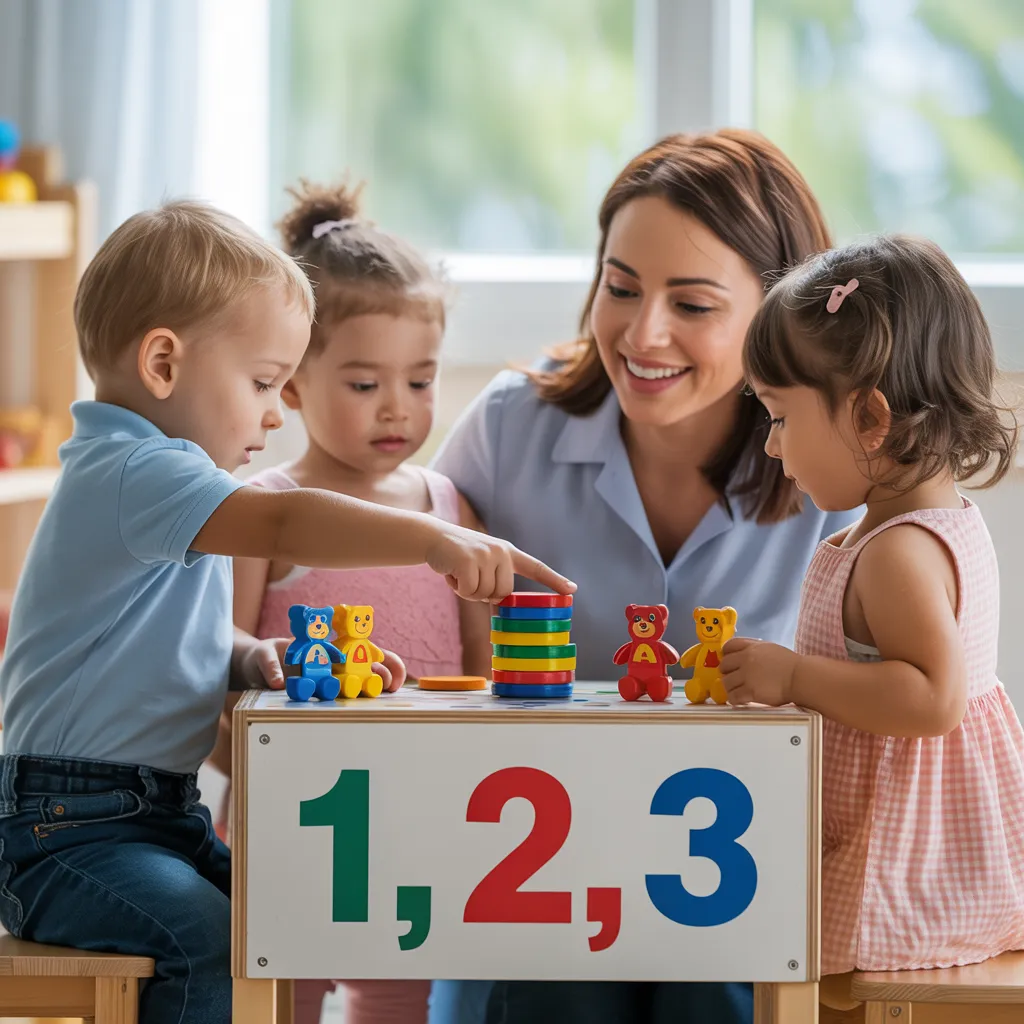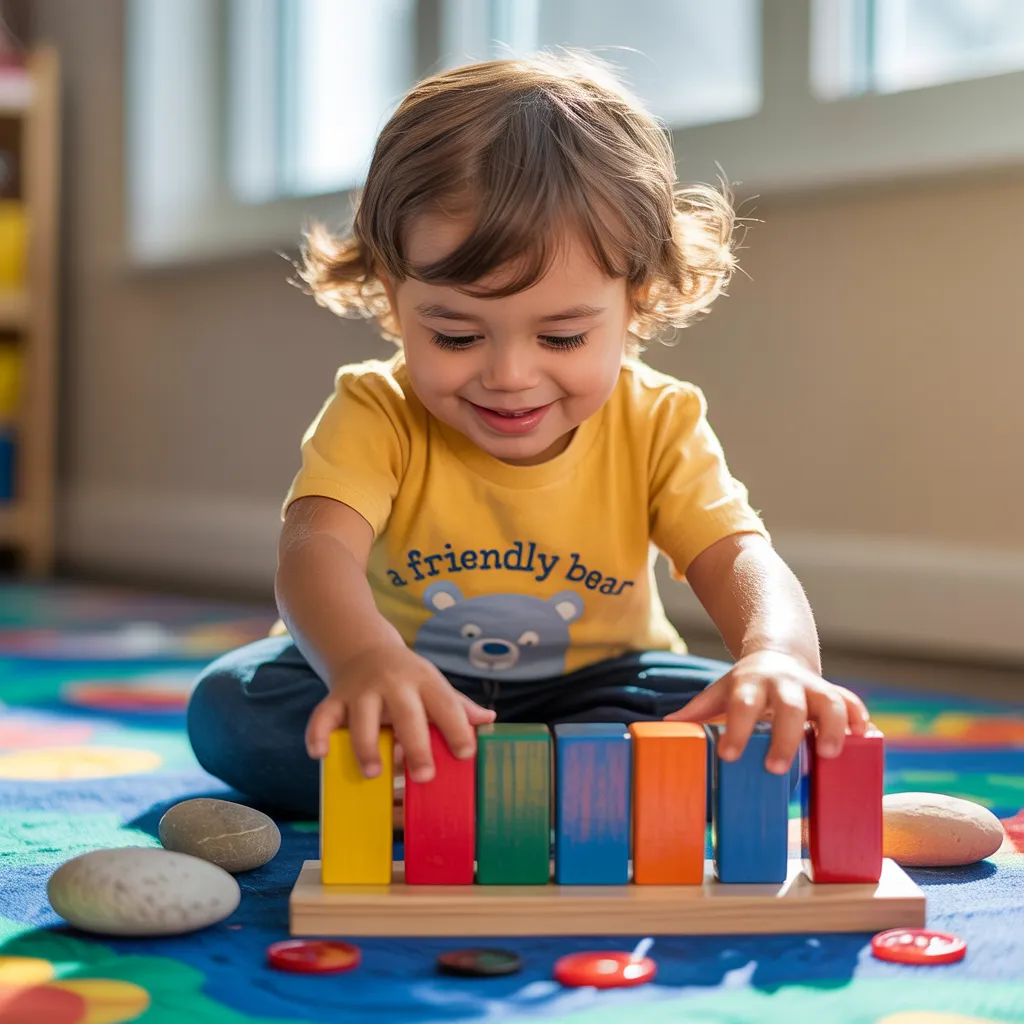Math games for preschoolers transform abstract numerical concepts into hands-on, playful experiences that young children eagerly embrace. When children engage with mathematics through game-based activities, they develop critical foundational skills—counting, number recognition, pattern awareness, and spatial relationships—while experiencing the joy of play rather than the pressure of formal instruction. For parents and educators seeking to foster early mathematical thinking, these interactive games provide versatile opportunities that accommodate diverse learning styles and developmental stages. Unlike worksheet-based approaches, math games for preschoolers create meaningful social connections while building cognitive skills, whether played one-on-one with an adult or in small groups with peers. The beauty of these activities lies in their ability to meet children where they are developmentally, providing just the right level of challenge wrapped in an irresistible package of fun. By integrating math games into daily routines, caregivers lay the groundwork for mathematical confidence that will benefit children throughout their educational journey.
The Developmental Benefits of Math Games for Preschoolers

1. Number Hunt
Cut out number cards from 1 to 10 and hide them around the room. Ask your child to walk around and search for the numbers. Each time they find a number, have them say it out loud and try writing it with their finger in the air.
Benefit: Boosts number recognition, memory, and gross motor coordination.
2. Jump on the Number
Write numbers from 1 to 10 on pieces of paper and place them on the floor. Call out a number and let your child jump on it. Add challenges like jumping on one foot or hopping backward for extra fun.
Benefit: Improves listening, number recognition, and physical coordination.
Math games for preschoolers provide far more than simple entertainment—they develop multiple interconnected mathematical and cognitive skills essential for future academic success. When young children regularly engage in purposeful math games, they build:
- Number sense: Developing an intuitive understanding of how numbers work
- One-to-one correspondence: Connecting each number word with exactly one object
- Quantity recognition: Understanding that numbers represent specific amounts
- Spatial awareness: Comprehending how objects relate to each other in space
- Pattern recognition: Identifying and creating mathematical patterns
- Early problem-solving: Developing strategies to overcome mathematical challenges
- Mathematical vocabulary: Building language that describes numerical concepts
Brain Development Through Math Games
Research consistently demonstrates that early mathematical experiences significantly impact brain development. When preschoolers engage in math games, their developing brains form neural pathways that support:
- Numerical cognition: Creating mental frameworks for understanding quantities
- Executive function: Strengthening focus, working memory, and cognitive flexibility
- Spatial reasoning: Developing visualization and mental manipulation skills
- Logical thinking: Building cause-and-effect understanding and prediction abilities
These cognitive benefits extend far beyond mathematics, supporting literacy development, scientific reasoning, and general problem-solving capacity. The playful context of math games triggers the release of dopamine—the « feel-good » neurotransmitter that enhances focus and memory formation—making mathematical learning more effective and enjoyable.

Essential Math Games for Preschoolers by Skill Area
Counting and Number Recognition Games
These fundamental math games for preschoolers build essential numerical foundations:
- Counting Hopscotch: Create a hopscotch grid with numbers 1-10 for children to count as they hop.
- Number Hunt: Hide number cards around the room for children to find and identify.
- Counting Jars: Fill clear containers with small objects (buttons, pom-poms) for counting practice.
- Number Parking Lot: Match toy cars to numbered parking spaces.
- Cookie Counting: Use play dough « cookies » and number cards for matching quantities to numerals.
Shape and Spatial Awareness Activities
These math games develop geometric thinking and spatial relationships:
- Shape Treasure Hunt: Send children searching for objects matching specific shapes in the environment.
- Tangram Puzzles: Use simple tangram sets with outlines for creating pictures with shapes.
- Block Pattern Matching: Create patterns with blocks for children to replicate and extend.
- Shape Sorting Relay: Sort shape cards or objects into categorized containers in a playful race.
- Obstacle Course Directions: Create simple courses requiring directional language (over, under, through).
Measurement and Comparison Games
These activities introduce measurement concepts through concrete experiences:
- Kitchen Band Comparisons: Fill containers with varying amounts of rice or beans to create instruments with different sounds, then discuss more/less/same.
- Measuring Me: Use non-standard units (paper clips, blocks) to measure height, foot length, or arm span.
- Balance Scale Investigations: Explore weight concepts using a simple balance scale with classroom objects.
- Size Sorting: Gather collections of similar items in different sizes (spoons, balls, boxes) for sorting.
- Estimation Jars: Guess how many small objects fit in different-sized containers, then count to check.
Pattern Activities for Mathematical Thinking
These math games for preschoolers develop algebraic thinking foundations:
- Sound Patterns: Create clapping or musical instrument patterns for children to repeat and extend.
- Movement Patterns: Develop action sequences (jump, twirl, clap) for children to follow and predict.
- Bead String Patterns: Create and copy simple patterns using colored beads or blocks.
- Pattern Block Designs: Use standard pattern blocks to create and replicate simple designs.
- Calendar Patterns: Identify and discuss patterns in dates, days of the week, and monthly events.
DIY Math Games for Preschoolers Using Household Items
Creating effective math games doesn’t require expensive materials. These simple DIY activities use common household objects:
Kitchen Math Activities
Transform cooking time into mathematical learning:
- Measuring Cup Explorations: Fill and compare different measuring cups with water or rice.
- Recipe Counting: Count ingredients together during cooking or baking.
- Silverware Sorting: Sort utensils by type, size, or other attributes while setting the table.
- Food Shape Identification: Identify and name shapes of different foods during meal preparation.
- Snack Math: Use small snacks (cereal, crackers) for counting, grouping, and simple addition/subtraction.
Recycled Materials Math Games

Repurpose everyday items into engaging mathematical tools:
- Bottle Cap Counting: Collect plastic caps for sorting, counting, and pattern-making.
- Cardboard Tube Measurement: Use paper towel tubes as non-standard measuring units.
- Egg Carton Math: Transform egg cartons into sorting trays, counting containers, or simple games.
- Box Shape Play: Convert empty boxes into building blocks for shape exploration.
- Homemade Memory Games: Create matching cards using cardboard and magazine cutouts.
Integrating Math Games for Preschoolers into Daily Routines
The most effective mathematical learning happens when integrated naturally throughout the day:
Morning Routine Math Moments
Start the day with playful mathematical thinking:
- Count steps on the stairs while going down for breakfast
- Identify shapes in clothing during dressing
- Measure cereal or pour equal amounts of juice during breakfast
- Create patterns with morning snacks
Outdoor Math Adventures
Transform outdoor time into mathematical explorations:
- Count nature findings (leaves, sticks, rocks) during walks
- Create patterns with natural materials in the yard
- Compare heights of plants, trees, or playground equipment
- Use counting while swinging, sliding, or jumping
Bath Time Numeracy
Make water play mathematically meaningful:
- Count and compare cups of water
- Explore volume concepts with different containers
- Create shape patterns with foam bath toys
- Practice ordering concepts with toy lineup
Bedtime Math Rituals
End the day with gentle mathematical connections:
- Count stuffed animals as they’re placed in bed
- Identify shapes in the bedroom environment
- Create patterns with bedtime story predictable elements
- Count backwards as part of the goodnight routine

Digital Math Games for Preschoolers
While hands-on experiences should form the core of mathematical learning, quality digital resources can supplement these experiences:
- Educational Apps: Seek apps specifically designed for preschool mathematical foundations with limited screen time.
- Interactive Counting Videos: Use simple, slow-paced videos that encourage participation.
- Virtual Manipulatives: Explore age-appropriate digital tools that mimic physical math materials.
When selecting digital math games for preschoolers, prioritize those that:
- Encourage active participation rather than passive viewing
- Provide immediate, constructive feedback
- Offer adjustable difficulty levels
- Connect to real-world concepts
- Limit distracting elements
Conclusion
Math games for preschoolers provide a powerful foundation for developing essential numerical thinking in a context that young children find engaging and meaningful. By embedding mathematical concepts in playful experiences, these activities build not just specific skills, but a positive attitude toward mathematics that can last a lifetime. The key to success lies in selecting games that match your child’s developmental level and interests, then integrating them naturally into daily routines. Start with simple counting and shape games, gradually introducing more complex concepts as skills develop. Remember that consistency matters more than duration—brief, frequent math play sessions yield greater benefits than occasional longer activities. Most importantly, maintain a playful approach that emphasizes discovery and joy rather than performance or correctness. With thoughtful implementation of math games for preschoolers, you’ll help build confident mathematical thinkers ready to embrace future learning challenges.
25 Powerful Counting Songs for Children That Boost Early Math Skills
FAQ About Math Games for Preschoolers
Q: At what age should I start introducing math games to my preschooler? A: You can begin incorporating simple mathematical thinking games from around 18 months, when many toddlers show interest in concepts like « more » or « all gone. » Start with very basic counting (up to 3) during everyday activities, simple shape identification, and size comparison (big/little). By age 2-3, most children enjoy more structured games like matching and sorting. Remember that developmental readiness varies significantly—follow your child’s interest and engagement rather than adhering to strict age guidelines. The key is keeping the experience playful and pressure-free while matching activities to your child’s current abilities.
Q: My preschooler seems to memorize counting sequences but doesn’t understand the actual quantity. What math games would help? A: This is a normal developmental stage! To bridge the gap between rote counting and quantity understanding, focus on games that emphasize one-to-one correspondence—physically touching or moving objects while counting them. Try « Counting Cups » (placing exactly one object in each cup while counting), « Stepping Stones » (placing one foot on each numbered stone while counting steps), or « Feed the Animal » games (putting a specific number of items into a container). Always emphasize slow, deliberate counting while physically interacting with objects. These tactile experiences help children connect the abstract number sequence with concrete quantities.
Q: How do I know if a math game is too advanced for my preschooler? A: Watch for engagement cues during play. If your child shows frustration, quickly loses interest, or becomes passive rather than actively participating, the game likely exceeds their current developmental level. Effective math games for preschoolers should provide just the right challenge—requiring some thought but allowing for frequent success. Start with activities focusing on numbers 1-5 before expanding to larger quantities. Introduce new concepts gradually, building on established skills. Remember that many mathematical concepts develop in a specific sequence (counting typically precedes addition, for example), so observe what skills are solidly established before introducing more advanced games.
Q: How can I help my preschooler who seems anxious about numbers or counting? A: Math anxiety can develop surprisingly early, often stemming from pressure or negative experiences. Combat this by emphasizing the playful, exploratory nature of mathematical thinking rather than correct answers. Start with strengths—if your child enjoys patterns but struggles with counting, begin with pattern games, gradually incorporating numerical elements. Embed math in high-interest contexts (counting favorite toys, measuring ingredients for a special treat). Use encouraging language that focuses on effort rather than accuracy (« You’re really thinking carefully! » rather than « That’s right! »). Most importantly, model positive attitudes toward mathematics yourself, expressing curiosity and enjoyment rather than anxiety when encountering numbers in daily life.
Q: Are competitive math games appropriate for preschoolers? A: Most preschoolers aren’t developmentally ready for truly competitive games, as they’re still developing emotional regulation and social skills. Instead, focus on cooperative math games where players work together toward a common goal—filling a jar with counted objects, completing a pattern together, or solving a problem as a team. If using game structures with winners, emphasize the fun of playing rather than winning, and consider modifications like taking turns being the winner or celebrating different kinds of successes during play. As children approach kindergarten age (5-6), some may enjoy mild competitive elements, but maintain a light-hearted approach that prioritizes learning and enjoyment over winning.
